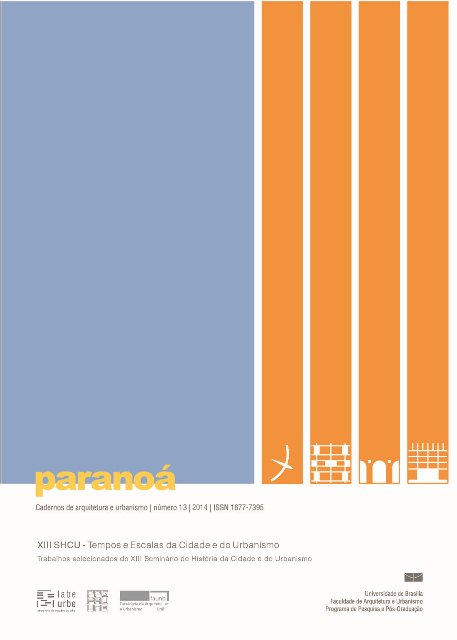O Rio de Janeiro a partir da chegada da Corte Portuguesa: planos, intenções e intervenções no século XIX
DOI:
https://doi.org/10.18830/issn.1679-0944.n13.2014.12047Keywords:
Rio de Janeiro, Urban history, Urbanistic plans, Transfer of the Portuguese CourtAbstract
This paper attempts to rescue, under the prism of urban plans, projects, and works carried out in Rio de Janeiro in the nineteenth century, the ways of thinking that held sway in the city after the arrival of the Portuguese Court, investigating how this event was fundamental in transforming the city long afterward, in the twentieth century. The transfer of the Court to Brazil in 1808 brought new perspectives and plans to Rio and to the entire country. All the changes that occurred in the urban structure during that period had as their backdrop the city’s adaptation to its role as capital of the Empire. In this process, it was essential to overcome the shortcomings of a colonial outpost whose conditions shocked the new arrivals, in counterpoint to its stunning natural beauty. The new customs brought from the European metropolis changed local ones and the French Artistic Mission of 1816, headed by Joaquim Lebreton, contributed to this process. Two plans were prepared for Rio, as the capital of the new Brazilian empire established after obtaining independence from Portugal in 1822: the Beaurepaire Report in 1843 and the Improvement Commission Report in 1875-1876. Both focused on sanitation, control and induction of urban development, pavement of new streets and widening of existing ones, as well as summarized the urbanistic concept of the time. Analyzing these reports reveals many proposals that were put into practice in the great interventions of the twentieth century.
Downloads
Downloads
How to Cite
Issue
Section
License
Autores que publicam nesta revista concordam com os seguintes termos:
- Autores mantém os direitos autorais e concedem à revista o direito de primeira publicação, com o trabalho simultaneamente licenciado sob a Licença Creative Commons Attribution que permite o compartilhamento do trabalho com reconhecimento da autoria e publicação inicial nesta revista. http://creativecommons.org/licenses/by/4.0
- Autores têm autorização para assumir contratos adicionais separadamente, para distribuição não-exclusiva da versão do trabalho publicada nesta revista (ex.: publicar em repositório institucional ou como capítulo de livro), com reconhecimento de autoria e publicação inicial nesta revista.
- Autores têm permissão e são estimulados a publicar e distribuir seu trabalho online (ex.: em repositórios institucionais ou na sua página pessoal) a qualquer ponto antes ou durante o processo editorial, já que isso pode gerar alterações produtivas, bem como aumentar o impacto e a citação do trabalho publicado (Veja O Efeito do Acesso Livre).















